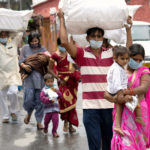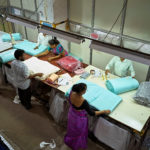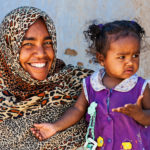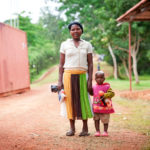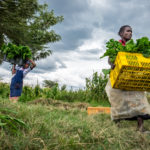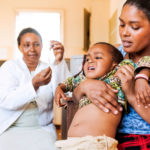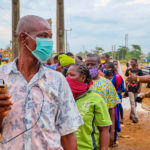In this study, we conduct a long-term follow-up of an empowerment programme (which raised labour force participation prior to marriage) and an anti-child marriage programme. We (a) investigate how exogenously changing adolescent girls’ (i) empowerment, (ii) marriage age, and/or (iii) education in rural Bangladesh affects their labour market outcomes over the long term (15 years…
Gender
Is Heading Home a Dead End? COVID-Induced Migration and Local Labour Market Opportunities in Rural India
On March 24 2020, the Indian government announced a nationwide lockdown to slow the spread of COVID-19. Implemented with just four hours’ notice, the lockdown forced millions of suddenly out-of-work migrants to return to their villages –often by foot over long distances. How can migrant-sending states support labor market opportunities for migrants without compromising COVID…
Assessing the Impact of the Shock on the Most Vulnerable
The COVID-19 pandemic poses a particular challenge for low-income and fragile countries, as well as vulnerable groups, particularly women. Our Sudan Labor Market Panel Survey (SLMPS) 2020 project, with planned data collection starting in August/September 2020, has benefited from support from the GLM | LIC project. The study proposes additional data collection and research on…
The Effects of Employer Responses to COVID-19 on Female Garment Workers in Bangladesh
Export manufacturing in low-income countries has been devastated by COVID-19. For instance, 46% of garment factories in Bangladesh report that “a lot” to “most” of their orders have been cancelled (Anner 2020), leading to mass demonstrations by workers who had not been paid for 3 months (Daily Star; April 17, 2020). Female workers are likely…
Assessing the Labour Market Impact of COVID-19 on Women with Young Children in Egypt
Women with young children are doubly challenged by the pandemic. Disproportionately responsible for caregiving, yet faced with the loss of child care options in light of the pandemic and lockdowns, they will face particular difficulties in retaining or gaining work and may face increased stress and pressures within the household. These women are already the…
Returns to Childcare and Capital: Experimental Evidence from Uganda
Microenterprises are an important source of employment, particularly in low-income countries where they employ more than half of the labor force. While access to finance has often been viewed as a powerful tool for small-scale business development, a growing literature has shown that success is not guaranteed and may depend critically on the entrepreneur’s gender.…
Taming Counterfeits Markets with Consumer Information
Access to quality inputs is critical for boosting agricultural productivity. However, quantitative research (Tjernström et al., 2017; Bold et al., 2017; Ashour et al., 2019) and news reports (Muchiri, 2019; Okinda, 2019) have documented that the quality of agricultural inputs—such as seeds, fertilizer, and pesticides—is often low in rural African markets. The inability of buyers…
Remittances and Coping with COVID‐19
The study seeks to support the Philippine COVID‐19 response by quantifying the role of international migrant remittances in helping households cope with the pandemic’s economic consequences. Remittances are known to provide important support for migrant‐origin households experiencing negative shocks. Little is known about whether migrants who are themselves experiencing negative shocks are able to provide…
Gender Effects of COVID-19: Evidence from the Kenya Life Panel Survey
Governments in many countries are implementing social distancing measures to reduce the spread of COVID-19, yet there is limited evidence about the effectiveness of these measures in low-income contexts. This is particularly true of travel restrictions/lockdowns; this, plus school closures, are likely to have major labor market implications, and potentially differential effects by gender. The…
Gender Differences in the Effects of the ‘Great Lockdown’ on Time Use
This research will address whether and how the coronavirus pandemic exacerbates barriers to gender parity in developing countries by asymmetrically affecting time use for men and women. The effects of COVID-19 are likely to differ by gender (Alon et al., 2020), but the nature and extent of those differences are uncertain. The study, therefore, proposes…

